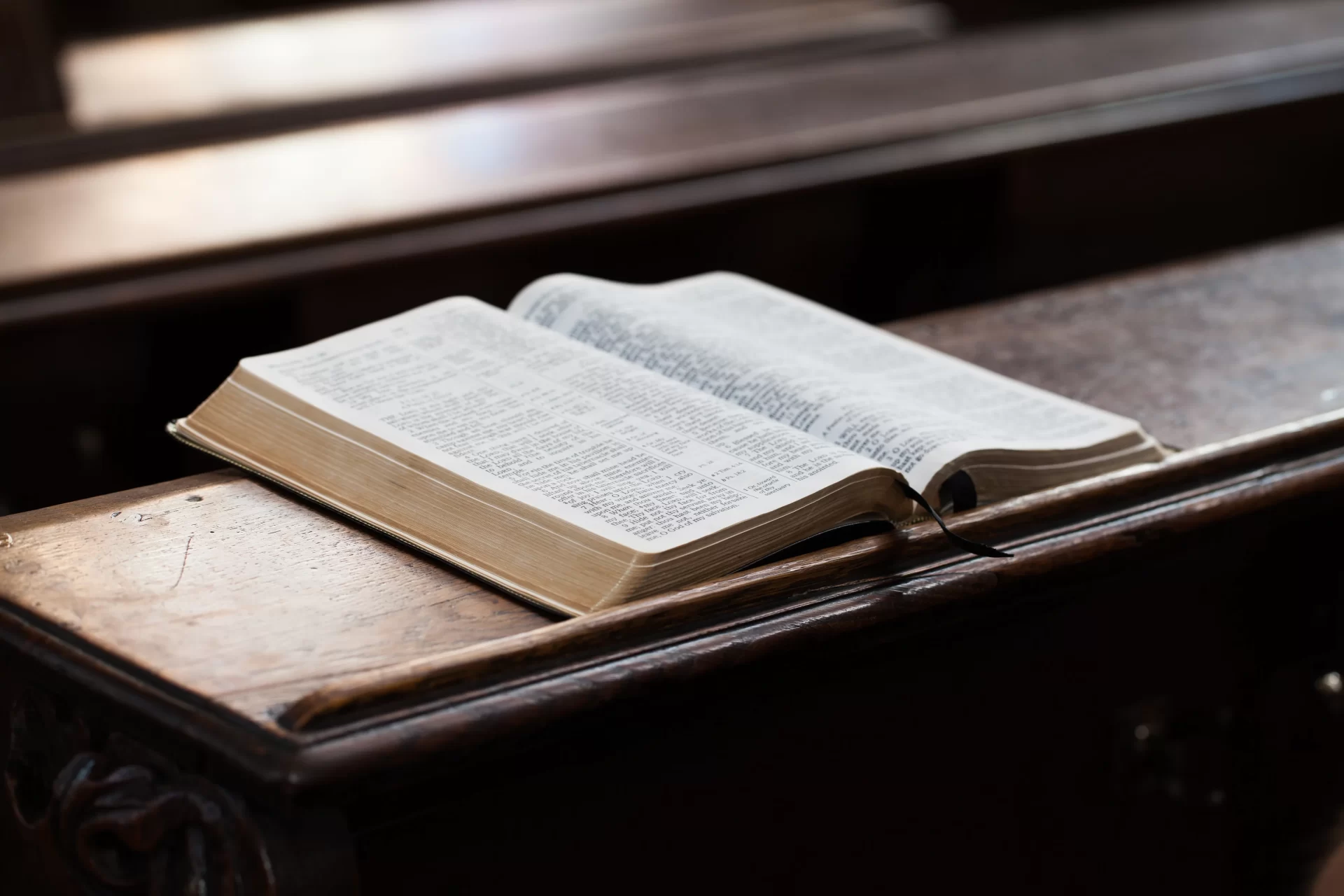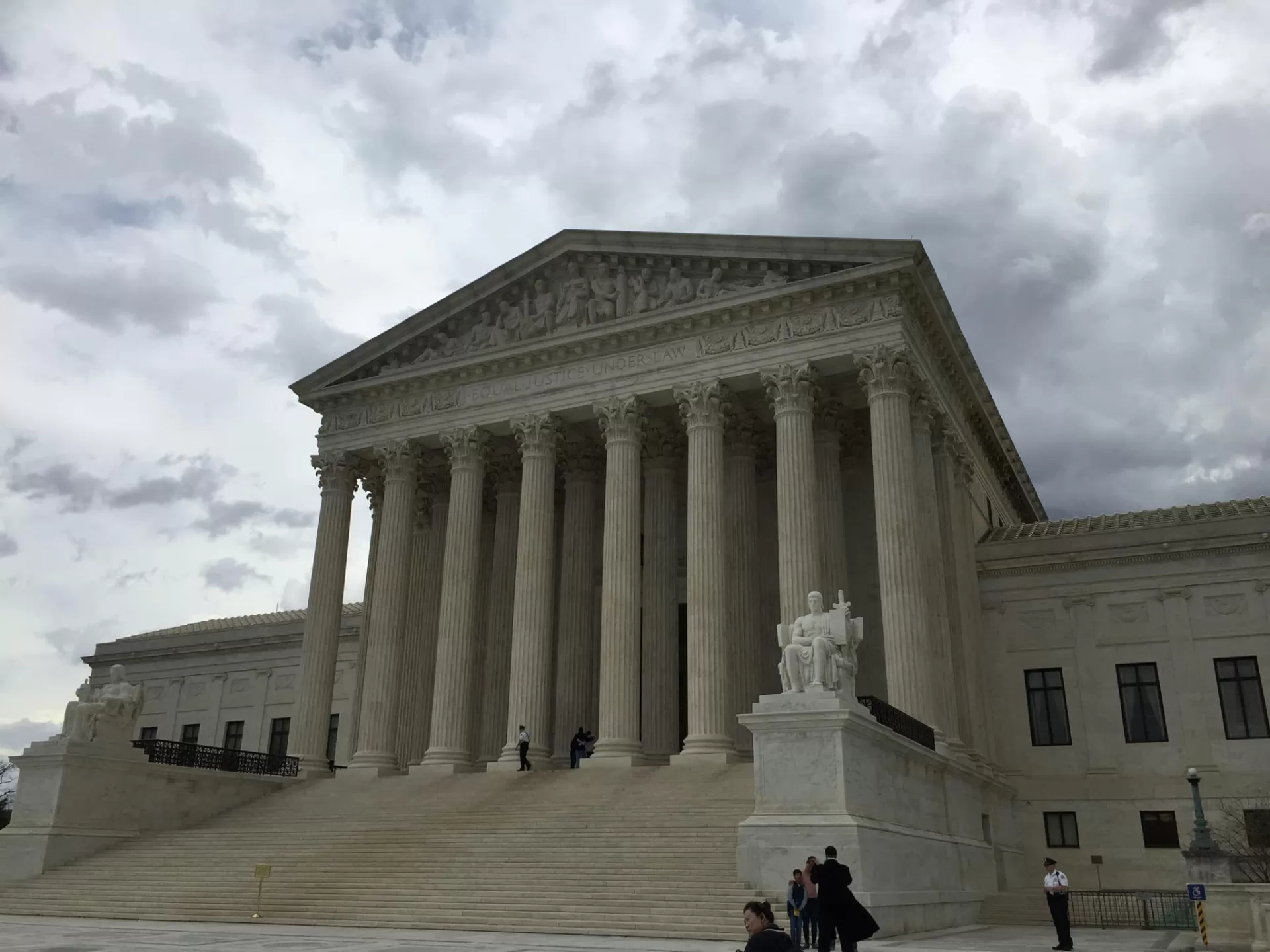” ‘When you do the duties of a midwife for the Hebrew women, and see them on the birthstools, if it is a son, then you shall kill him; but if it is a daughter, then she shall live.’ But the midwives feared God, and did not do as the king of Egypt commanded them, but saved the male children alive” (Exodus 1:16-17)
“You shall not pervert justice; you shall not show partiality…You shall follow what is altogether just” (Deuteronomy 16:19-20)
“Nevertheless even among the rulers many believed in Him, but because of the Pharisees they did not confess Him, lest they should be put out of the synagogue; for they loved the praise of men more than the praise of God” (John 12:42-43)
” ‘Did we not strictly command you not to teach in this name? And look, you have filled Jerusalem with your doctrine, and intend to bring this Man’s blood on us!’ But Peter and the other apostles answered and said: ‘We ought to obey God rather than men” (Acts 5:28-29)
“I myself always strive to have a conscience without offense toward God and men” (Acts 24:16)
“For God has not given us a spirit of fear, but of power and of love and of a sound mind” (2 Timothy 1:7)
“Remember that Jesus Christ, of the seed of David, was raised from the dead according to my gospel, for which I suffer trouble as an evildoer, even to the point of chains; but the word of God is not chained” (2 Timothy 2:8-9)
“Remember the prisoners as if chained with them–those who are mistreated–since you yourselves are in the body also” (Hebrews 13:3)
“Beloved, do not think it strange concerning the fiery trial which is to try you, as though some strange thing happened to you…For the time has come for judgment to begin at the house of God; and if it begins with us first, what will be the end of those who do not obey the gospel of God?…Therefore let those who suffer according to the will of God commit their souls to Him in doing good, as to a faithful Creator” (1 Peter 4:12-19)
The recent conflict surrounding Rowan County clerk Kim Davis and U.S. District Judge David Bunning over compliance to the Obergefell decision goes beyond the mere politics of the moment. It is irrelevant that clerk Davis, jailed for 5 days while her office staff (expressing no such qualms as hers) issued the licenses she would not, is a Democrat, in whatever sense of the word. It is irrelevant that Judge Bunning is a Republican appointee, who has been involved in cases involving homosexulity before (see the Gay-Straight Alliance case from 2003). It is even irrelevant that the Judge’s order rests upon the 5-4 Obergefell decision, a decision so shoddily argued it could make Dred Scott look prestigious. With the mere sweep of the gavel the interpretation of three-fifths of our state legal codes were changed overnight, thirty decisively passed state propositions overturned, and the single decision of one Supreme Court justice has instantly cemented into the “law of the land” to which all owe total obeisance. We live now at the behest of judges, who appeal to the sanctity of oaths and the rule of law (as Judge Bunning has) but in doing so have actually supplanted the source of legal authority. This has reordered the freedom to exercise the dictates of one’s conscience to something trivial, as if it were no more important than a traffic infraction. It completely denies the existence of any duty to God. The State is God, as far as this view is concerned. This requires we suspend our conscientious objections and implement whatever five lawyers are prepared to say the law is. Is law truly based on so tenuous and arbitrary a foundation?
For law to be lawful it has to rest on something more than mere earthly authority. Law has its limits and the nature of obedience is something far more profound than whatever the current consensus of courts say it is. Courts are entrusted with the adjudication of disputes, not the determination of issues or rights. Nor are courts entrusted with legislating social policy for everyone including most of us not even a party to the decision. The task of the judiciary is the interpretation of cases according to the laws as written, not as courts would like it to be. Laws mean nothing if they do not rest upon principles of eternal righteousness enacted by the people through their chosen representatives. Majorities, just as the legal code given to Moses made plain, did not make law anymore than influential minorities could then or can today.[1] People do but discover what is already anchored in the bedrock of God’s order. This latest instance of rule by judges is not a warranted correction to that old boogeyman of “church” forcing its way on “state,” as even some Christians feel. It is not merely equivalent to reducing the national speed limit to 45 or spelling out the allowable distance between fire hydrants and parking spaces in municipalities. This is fundamentally transforming institutions government had no hand in creating in the first place, concerning the very essence of society’s first building blocks: the family, marriage, and personhood itself, which is also up for existential redefinition these days. The conscience is not the property of government. Government has no more claim to ownership of an individual’s conscientious convictions than to deny life or liberty to whole classes of people by simply denying their humanity, be they in slavery to someone else (as in Dred Scott v. Sandford) or growing in the womb (as in Roe v. Wade).
Rules are there not to merely empower the few at the expense of the many but rather to sustain and protect everyone’s continued exercise of both rights and responsibilities.[2] The authority of law, applying to each person equally, is not honored when judges can simply throw out entire states’ propositions on a given rule or statute. Judges are no more at liberty to discard these ballot results than they are to overturn presidential, legislative, or gubernatorial outcomes with which they disagree. For law to rule, it must apply to the highest official with the same force it applies to the citizen. This principle has been at the heart of jurisprudence since ancient time, including the law God gave to Moses.[3] The notion that the “game” was rigged from the beginning is nothing more than projection, the artful sleight of hand that some current office holders perform to actually alter the arrangement of rights and duties in their own favor. This always leads to a proportionate loss of liberty and consent in the hands of the people.
By being true to conscience, we adhere to that highest of laws, appealing to God for the uprightness of our intentions. As we live peaceably with all, so far as it depends on each of us, this cannot mean an absolute avoidance of conflict.[4] Christ is conflict. He clashed with the arbitrary rules of the Sanhedrin, the national government of his day. God blessed the midwives of Egypt, who committed flagrant civil disobedience against Pharaoh’s command. When individuals became Christians they did not quit their jobs in government, the military, the public sector. They continued in those roles knowing that this was as much a part of advancing the gospel as what has now come to be called “full time ministry.” Erastus did not resign as city treasurer (in Greek, the oikonomos, pronounced oy-co-no-moss)[5] because it would offend unbelievers or potentially bring him into conflict with his convictions. He continued in that role and lifted the ideals of his office, putting on Christ wherever he was, as Scripture makes clear.[6] The same could be said of Cornelius, Sergius Paulus, the Philippian jailer, those of Caesar’s household, and others unnamed in the record.[7]
Those who criticize clerk Kim Davis for failing to resign, drawing wide public attention, seem all too ready to adopt a timid and cowardly gospel. They mistake never questioning arbitrary uses of authority for obedience to the rule of law. They seem prepared to “go along” in order to “get along” in this world.[8]
Are we truly ready for the day when prison becomes the norm for a conflict of conscience? Are we passively surrendering now what seems so small and inconsequential a matter to “keep the peace”? Are we going to avoid making ourselves a public target now, sitting silently by while the long-term results of our silence slowly remove the ability to defend justice when it is under assault in the future? Are we going to remain spectators while others who confess Christ, as He expected public profession, face (many for the first time in this country) serious legal consequences for nothing more than a reservation of conscience? Are we prepared, if necessary, to maintain what we know is right, to sit in a cell, behind steel bars, clothed in bright-colored jumpsuits, held up before the media, suffering the humiliation and ostracism but remembering that we have excellent company in that “great cloud of witnesses”[9]? Are we afraid to voice the mildest dissent with something the government wants us to implement, be we clerks, bakers, wedding planners, photographers, or merely citizens? Are we cowed by the prospect of public scorn, fines, or perhaps even prison? How is any of this different than the circumstance of Paul and Silas, Peter and John, or dozens of others who were beaten, imprisoned, falsely accused, and worse for nothing more than a matter of conscience that each stubbornly refused to relinquish?
It would be one thing if the Court had decided Obergefell on constitutional grounds. They did not. The conclusion had to mold the facts until history, the particular case, even the meaning of every state proposition and federal law to the contrary had to be twisted, omitted, or emptied of all meaning whatsoever. This was done in order to obtain the political outcome five lawyers wanted. For Christians to defend this decision either as the “law of the land” to which all should submit or to use it as a shuttlecock against those they perceive are undermining the separation of church and state is not only ignorant but shameful.
When the people of the various states put in their charters the meaning of marriage, sovereign authority means it can only be changed through the same amendment process. Judges cannot supply what they perceive to be deficient in the law without curtailing the far more fundamental protections actually in the Constitution: the free exercise of religion recognized in the First Amendment, for instance. The majority in Obergefell gave the Amendment lip service in its opinion but ultimately despises the primacy of individual conscience recognized in that part of our Constitution.
The judicial or legislative attempt to force change of this essential leads invariably to the revolt of the soul. The government, indeed, the very authority of law, is nothing if it does not support the freedom to exercise religion unabridged, including the conscientious reservations that Clerk Davis has exercised. The people of Kentucky may choose to change course but even they are bound by God’s order. The people cannot delegate to the federal Government what they do not possess themselves. Science may give the illusion that we can change these fundamentals as nothing more than mere social constructions but not even “The People” can alter the laws of the Universe, however much some wish to do so. How much less then, do mere judges have sanction to change course for us especially when we have already expressed our voice through the host of ballot propositions passed over the years?
Those judges, out of Kentucky last year, who overturned the 2004 amendment to that state’s constitution approved by her citizens are flouting the very oath they took, replacing government by law with a government by personal preferences. The oath administered to federal judges (found in 28 U.S. Code § 453) reads: “I, ___ ___, do solemnly swear (or affirm) that I will administer justice without respect to persons, and do equal right to the poor and to the rich, and that I will faithfully and impartially discharge and perform all the duties incumbent upon me as ___ under the Constitution and laws of the United States. So help me God.” Judge Bunning, in reminding clerk Davis of her obligations, is equally bound by his own oath of office to the supreme law of the land, not merely its latest interpretive incarnation. To uphold Obergefell one must subordinate the Bill of Rights’ free exercise and the very principle that government operates by consent of the governed. Through turning the pinnacle of legal meaning and authority on its head to achieve a predetermined political goal, these judges are enacting the antithesis of obedience to law. It is a repudiation of the Declaration for the sake of momentary victory, divesting the whole people of their rights for the sake of a select few with influence to peddle. President Calvin Coolidge warned that no minority is good enough and no majority is wise enough to trust with that kind of power. “We need the restraints of a written constitution,” he admonished. Scripture teaches that justice requires this kind of impartiality,[10] neither beholden to numbers nor subjecting the application of law to the bribery of the influential few. For law to be law, it cannot rest on that droll wordplay, “The Golden Rule is whoever has the gold makes the rules.”
By ripping away the right of the conscience to remain free and unfettered, subjecting it to the policies and interests of the government whatever those happen to be at the moment, this does replace a written constitution with an unwritten, malleable, and ephemeral one. Without the anchor of objective meaning, everything is up for grabs. This is why Christians dare not display indifference to what has happened in Kentucky. It threatens us all. While we do not need the permission of government to follow Christ, how can we walk callously past one soul after another slowly being crucified for the practice of conscience? We now see that supreme law can be downgraded to whatever measure of importance the judge decides to assign it, and conscience can be treated as if it were nothing more significant than some municipal code forbidding animals in certain residential developments. In the end, obedience to the wishes of a few before requirements clothed with the sanctity of law but lacking its substance is not civic obedience at all. It is a mockery of law and its authority. This disdain for the law by judges will eventually consume the very institutions that presume to legislate on matters without authorization from that Supreme Judge of the Universe. Our silence at this time only encourages a corrosion of justice, enables the perversion of law, “blinds the eyes of the wise and twists the words of the righteous.”[11] Christians must not be complicit in such deeds. How can we conclude that we have not come to this republic at such a time as this but to defend the blessings of a written constitution?[12]
Our system of limited government was established to give full place to the protection of rights and exercise of responsibilities through the conscientious voice of the people. It does not deposit this authority in the voice of judges. It does not seek to reflect their desires, their goals, or their vision for the nation’s laws and the Constitution. These are made by the people directly or through their chosen representatives: elected legislators. Some do not like this arrangement, but it has preserved life and liberty through many attempts to cast it aside and will remain until the people, not the courts, change that system or allow it to be changed by our silence.
The great fundamentals are immutable. Marriage and the individual’s conscience, predating the earliest human government, are things outside the reach of all mortal institutions. They no more belong to any court than they do to any legislature. Not even the sovereign people of a nation can vote to overturn fundamentals like these. Having upheld their sanctity from government interference, however, as the federal and most state constitutions have, no official (from county clerk to federal judge) is empowered to replace or abolish them with values not only contrary to the ratified voice of the people but in willful defiance of God’s eternal order since the Garden.
Refusing to countenance any place for individual conscience in the administration of law, the new regime we see unfolding around the country imposes a religious test to officeholders after all, contrary to Article VI of the U.S. Constitution. It is a test of a new State religion mandating the suspension of conscience in order to implement whatever the courts dictate, whatever violence it inflicts on the conscience of the individual. What kind of law must it be when denial of conscience becomes the prerequisite? What does this mean for the oath all take before God and man?
This is no longer mere obedience to the rule of law but to the desires and values of other men, using the strength of legal authority to co-opt our compliance. This is not the law-abiding example Scripture requires of Christians. It is diametrically opposed to the obedience we owe laws that rest on much older foundations, rooted in the righteous character of God Himself. After all, even before sin entered the world, He gave us the freedom to choose. This new regime takes all that away. We have no right to choose other than what the State allows. It adopts in place of God’s created order a suppression of each person’s internal light of conscience, and rather than lifting and informing it, shackles it in ignorance, enslaving the very mind and soul to condone whatever government wishes to do. It leads each person to become his or her own self-enemy, ensnared in the thicket of our own betrayal of righteousness, until it destroys us completely.
[1] Exodus 23:2
[2] Deuteronomy 29:10-15, 29; Jeremiah 31:31-34; Romans 7:1; James 2:1-13; 1 Peter 4:12-19, as quoted above.
[3] Deuteronomy 17:18-20; 2 Chronicles 7:17-20
[4] Romans 12:18
[5] Bauer, Greek-English Lexicon of the New Testament and Other Early Christian Literature 560
[6] Acts 19:22; 2 Timothy 4:20
[7] Acts 10.:1; 13:12; 16:34, 36; 17:34; Philippians 4:22
[8] James 4:4
[9] Hebrews 12:1
[10] 1 Timothy 5:21-22
[11] Deuteronomy 16:19
[12] Esther 4:13-14









